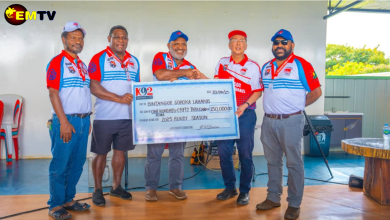Brazil plea-bargain testimony says president took $4.6 million in bribes
Image: Demonstrators take part in a protest against Brazil’s President Michel Temer in Sao Paulo, Brazil, May 18, 2017. The banner reads “Out Temer.” REUTERS/Nacho Doce

By Brad Brooks and Lisandra Paraguassu
SAO PAULO/BRASILIA (Reuters) – Brazil’s top court released plea-bargain testimony on Friday accusing President Michel Temer and his two predecessors of receiving millions of dollars in bribes, the most damaging development yet in a historic political corruption probe.
The testimony made public by the Supreme Court is from executives of the world’s largest meatpacking company, and raises serious doubts about whether Temer can maintain his grip on the presidency.
The scandals that have engulfed Brazil’s political class and many business elites reduce the chances that Temer, a conservative who took office after leftist former President Dilma Rousseff was impeached last year, can push through economic reforms crucial for Latin America’s biggest country to recover from its worst recession on record.
The Supreme Court on Thursday said it approved an investigation of Temer for corruption and obstruction of justice. Calls for his resignation intensified, including an editorial in the O Globo newspaper, which is normally criticized by leftists for backing conservative politicians.
“This is easily the worst moment in Brazil since we returned to democracy,” said Claudio Couto, a political scientist at the Getulio Vargas Foundation, a top university, calling the claims “the mother of all plea bargains.”
“This testimony is hitting everyone, all the major political players and, most importantly, a sitting president,” he added.
The revelations came from testimony given by executives at JBS SA. Once a small meat producer, JBS grew exponentially during 13 years of government by former President Luiz Inacio Lula da Silva and Rousseff’s Workers Party, primarily through acquisitions funded by low-cost loans from Brazil’s development bank.
The JBS executives said they made about 500 million reais (118.13 million pounds) in illegal payments to politicians and bureaucrats in recent years in exchange for winning contracts, getting easy credit from state-run banks and resolving tax and other disputes with the government.
Temer’s office denied in a statement that he obstructed justice by interfering in the probe and also denied accusations he took bribes. Lawyers for Lula said he was innocent. Rousseff denied any wrongdoing in a statement.
In addition to the three presidents, congressmen, ministers and several governors and mayors of major cities were named in the testimony. It implicates ruling and opposition parties alike.
According to the testimony, JBS paid Temer 15 million reais ($4.6 million) in bribes. It also alleges that Lula, who is already facing five corruption trials, received $50 million in bribes in offshore accounts from JBS, while Rousseff took $30 million in bribes, also in offshore accounts.
The corruption scandals that have polarized Brazil centre on political kickbacks in exchange for firms winning contracts at state-run enterprises, especially at oil company Petrobras.
They have led to over 90 convictions of businessmen and politicians and prompted the investigation of dozens of sitting congressmen and a third of Temer’s cabinet.
Supreme Court Justice Edson Fachin wrote this week that an immediate investigation into Temer was required because the alleged criminal practices “are underway or about to occur.”
Temer on Thursday, in a terse address, said he would not resign from the presidency.
His defiance came as the Supreme Court released an audio tape of him speaking with JBS Chairman Joesley Batista.
In the recording, secretly made by Batista in a March visit to Temer, the president appeared to condone the payment of hush money to former lower house speaker Eduardo Cunha, who last year orchestrated Rousseff’s impeachment and was later convicted for corruption.
Many politicians fear that if Cunha should turn state’s witness, his testimony could implicate scores of congressmen and members of the executive branch.
The constant march of indictments and new scandals has led to near paralysis in Brasilia, the capital, and led to widespread calls among Brazilians for new elections.
But new elections would require a constitutional amendment.
If Temer resigns or is forced from office, the constitution at present says Congress must choose a caretaker president and vice president to govern until the next election, scheduled for late next year.
The JBS testimony also tainted one other prominent politician – Aecio Neves, a senator. Suspended from the chamber in the wake of the allegations, Neves led the chief opposition to Workers Party governments and placed a close second behind Rousseff in 2014 presidential elections.
Executives said JBS had paid Neves 80 million reais in illegal funding for that campaign as well as 2 million recently to support a new “abuse of authority” law that seeks to make it easier for suspects and defendants to sue investigators, prosecutors and judges.
The measure, which passed the Senate last month, must still be approved by the lower house. It has been sharply criticized by those leading Brazil’s crackdown on corruption.
Prosecutors wrote in the document released on Friday that they had proof Neves collaborated with Temer in attempts to slow or halt anti-corruption investigations.
(Reporting by Brad Brooks in Sao Paulo and Lisandra Paraguassu in Brasilia; Editing by Paulo Prada and Tom Brown, Grant McCool)






